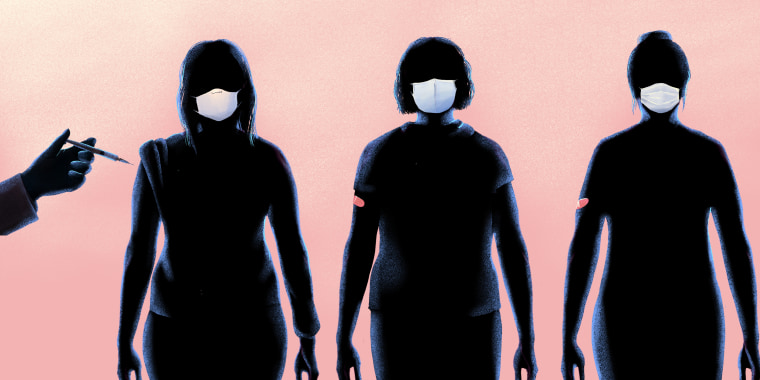Today everyone over age 16 is eligible for the COVID-19 vaccines. While there is still a pause in distribution of the Johnson & Johnson vaccine, the Moderna and Pfizer-BioNTech vaccines are available. As more and more people receive vaccinations, experts stress that your vaccination status does not eliminate the need for mask-wearing and other safety measures.
When are you considered fully vaccinated?
A person is not considered fully vaccinated until two weeks after receiving their second dose of the Moderna or Pfizer vaccines; and two weeks after receiving one dose of the Johnson & Johnson vaccine.
"Until you get that second dose, you shouldn't consider yourself protected," Dr. David Dowdy, an epidemiologist and associate professor at the Johns Hopkins Bloomberg School of Public Health, explained to TODAY last year, referring to the Moderna and Pfizer vaccines. Dowdy added that the rollout of the vaccines will take months which means that safety precautions like social distancing and mask-wearing are still important.
Do fully vaccinated people still need to wear masks?
Short answer: Yes. In early March, the Centers for Disease Control and Prevention released guidance on what fully vaccinated people can and cannot do. While fully vaccinated people can gather with other fully vaccinated people mask-free, in most other settings it is important to still wear a mask and stay at least 6 feet apart from others. The CDC urges fully vaccinated people to follow these precautions when in public, gathering with unvaccinated people from more than one household or visiting with an unvaccinated person who is at high risk of severe illness from COVID-19.
Krystal Pollitt, an assistant professor of epidemiology at the Yale School of Public Health, said that there are still some unanswered questions: While the vaccines seem to prevent people from getting the disease, it's unclear if people can still be infected and transmit the virus to unvaccinated people. To date, there have been over 5,800 breakthrough infections in people who have been fully vaccinated, according to the CDC. The majority of those people were not hospitalized and 29% experienced asymptomatic infections.
"(People) may be potentially asymptomatic, with low levels of virus in their systems, and be able to spread the virus to others, even if they are vaccinated," she explained.
The CDC notes that early data indicates the vaccines may help keep people from spreading COVID-19, but are learning more as more of the population becomes vaccinated.
"It's important to continue wearing masks," Dowdy said. "People who have gotten the vaccine should be operating in much the same way as people who have not had the chance to get the vaccine, as far as trying to slow the spread of transmission of the disease."
RELATED:
This story was updated on April 19, 2021.


